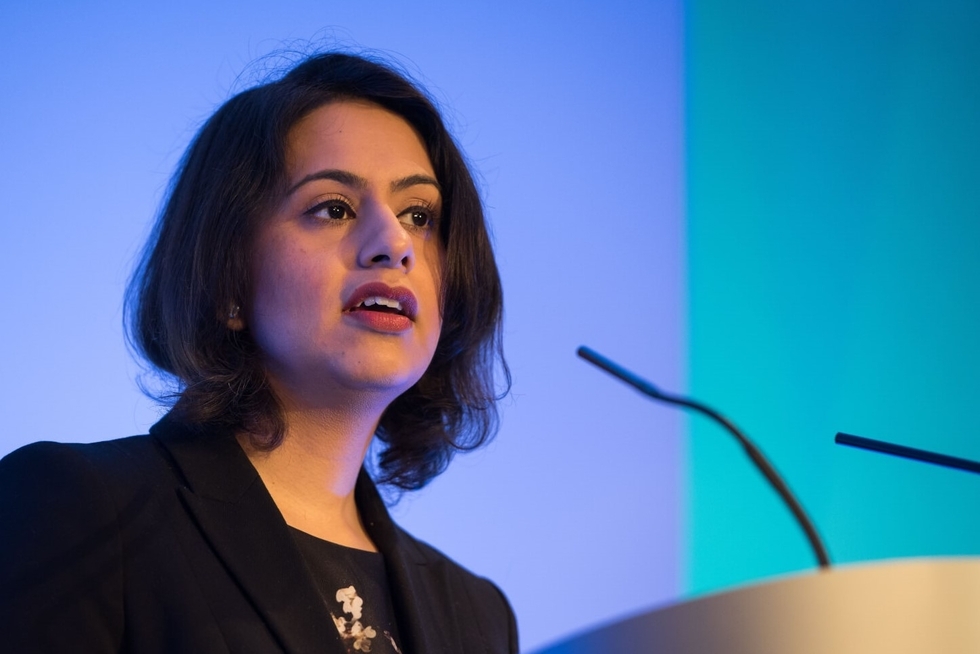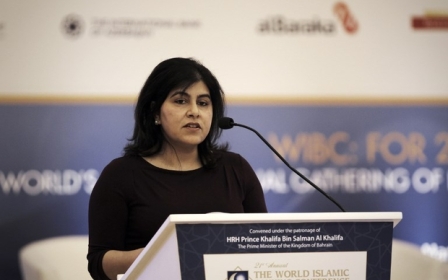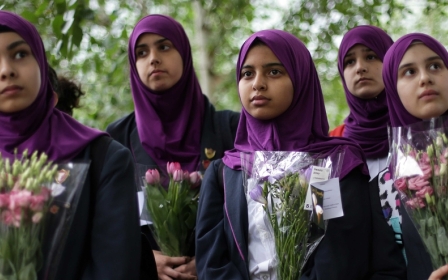Sara Khan is not the issue, it is how the state treats radicalisation

The appointment of Sara Khan as chair of the UK's Commission for Countering Extremism headed by the Home Office has raised eyebrows.
There are many within the Muslim community who argue that the appointment sends a chilling signal that the status quo will remain and that the existing dominance of the pro-"Prevent", pro-assimilation and indeed, the delegitimisation of Muslim resistant politics will become the norm.
Others say that a champion of human rights, community engagement and a challenging voice who is both Muslim and British can only be a good thing in a climate where there is a real lack of coherence as to what the problems or the solutions might be.
The fact of the matter is that it is too early to tell exactly how things will pan out; however, recent history has suggested that things may not go well at all.
Extremism thinking
First, these kinds of commissions rarely challenge the existing policies of the government and in some cases simply act as a rubber stamp. As one of the most pressing concerns that affects the entire country in relation to matters of cohesion, identity and security, the issue of radicalisation and how to eliminate it affects us all.
The last thing anyone needs is no change of any kind.
Second, if the dominant paradigm here will not shift the stupefying assumption that ideology is the driving force in radicalisation, then there is a very real possibility that the discourse will become even more divisive, disproportionate and disingenuous.
This commission needs to ask the tough questions and be unafraid of the answers that are revealed
The third problem with extremism thinking in Britain - and elsewhere in Western Europe - is the assumption there is one cause of extremism and that is the ideological misinterpretations of a particular religion.
Nothing else is taken into consideration, including context, history, memory and the underlying implications of existing policy, ideology and their normalisation in the everyday imagination.
Prevent, a policy that has generated more division and infighting but produced very little by way of change, has created huge internal divisions among Muslims affected by it and those who are also charged with delivering it through projects or as employees in the public sector.
Lack of alternatives
In spite of the many years of academic, societal and community criticism, the policy rumbles on with little or no adaptation to these concerns. The lack of an alternative on the part of the British Muslim community in the form of rounded, indigenous organic measures that empower communities, make them resilient, protect the youth and develop a forward-looking vision of inclusion and growth, is also a major concern.
This is because government rhetoric focuses on ideology, regressive interpretations of Islam, anti-integration sentiment, resistance politics, anger and disaffection towards failed Western foreign policy and lumps them all together as elements of a problem that has a singular solution. The solution is to modify and moderate Islam.
This is the heart of the problem for the last decade and a half.
The problem with extremism thinking in Britain is that there is one reason that is believed to cause extremism and that reason is the ideological misinterpretations of a particular religion
Everything else that is important in understanding, breaking down and helping to eliminate issues of radicalisation points to a multivariate set of factors that are important in understanding the processes and the mechanisms through which radicalisation can be eliminated.
The research suggests strongly that radicalisation on the basis of religion is a later-stage process, whereas it is the sociological, political and cultural pressures that act as the initial push factors in relation to radicalisation.
No one has asked the question, one that I have been banging on about for the last decade or so, which is: if we want to be serious about eliminating radicalisation, shouldn't we focus on the structural and cultural issues that drive vulnerable people with no recourse but to kill themselves in order to realise themselves?
Society's failure
Surely all of this is a failure of us as a society as a whole. Surely if we are honest about what the problems are, we would not still be talking about commissions, appointments of particular individuals or the immense divisions that exist between policymakers, scholars and activists, and the community at large.
A lot of the wider problem with all of this is whether the powers that be truly want to understand radicalisation and extremism for what it is objectively, accurately and verifiably.
There seems to be no appreciation for independent rigorous scholarly research, unless it is carried out by the government or through projects delivered by sympathetic organisations that do not challenge the status quo.
The Home Office routinely -overtly and covertly- funds institutions to deliver particular forms of output to help with the existing agenda but they would not want you to know that.
Sara Khan’s sister, Sabin Khan, is a senior figure at RICU - which is a self-confessed propaganda operation aimed at using various tools with social media, in particular, to sway vulnerable young people away from radicalisation.
Certainly, this is an admirable goal, but the mechanisms are somewhat dark and sinister. Various think tanks associated with the world of counterterrorism and anti-radicalisation are fixated on not addressing the social and cultural issues, but rather talk up the problems of ideology while talking down the problems of structural disadvantage.
I have been walking through the hallowed corridors of Whitehall and through the doors of institutions talking up and talking down radicalisation for way too long now. However, the reality is that many different sides of the equation simply do not want to talk to each other, but talk past each other - because the policy agenda driving this is stuck in the past, and is too hollow and shallow to be reformed.
Rather it needs to be reconstituted from scratch.
Many people are agitated about Sara Khan, but this risks focusing only on an individual when the individual here is entirely symbolic of the systematic nature of how the problem of radicalisation is treated by the state.
This commission needs to ask the tough questions and be unafraid of the answers that are revealed. However, this has to be done so in a way that is objective, reasonable and viable and not driven by predetermined notions of what the problems are and what the solutions are going to be.
If this is the case then we might as well pack up our bags now and begin to write up the narrative of what went wrong with this commission.
- Professor Tahir Abbas FRSA is currently visiting senior fellow at the department of government, London School of Economics. His recent books are Contemporary Turkey in Conflict: Ethnicity, Islam and Politics (Edinburgh University Press, 2016), and the four-volume edited collection Muslim Diasporas in the West (Routledge, 2017). He recently published an article on the ‘Trojan horse’ plot, published as ‘The Inside View on the “Trojan Horse” Plot and British Muslims in Schools’ in the Journal of Muslim Minority Affairs (2017).
The views expressed in this article belong to the author and do not necessarily reflect the editorial policy of Middle East Eye.
Photo: Sara Khan giving a speech at the Since 9/11 National Education conference, January, 2017 (Sara Khan website)
New MEE newsletter: Jerusalem Dispatch
Sign up to get the latest insights and analysis on Israel-Palestine, alongside Turkey Unpacked and other MEE newsletters
Middle East Eye delivers independent and unrivalled coverage and analysis of the Middle East, North Africa and beyond. To learn more about republishing this content and the associated fees, please fill out this form. More about MEE can be found here.






